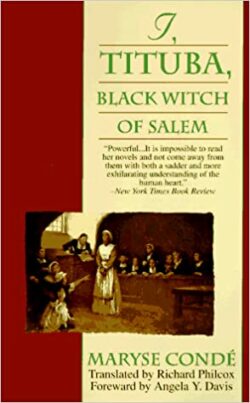Sponsored by Forge Books.
When thirty-nine-year-old Maria Forssmann wakes up in her seventeen-year-old body, she doesn’t know how she got there. All she does know is she has to get back: to her home in Bienville, Mississippi, to her job as a successful psychiatrist and, most importantly, to her husband, daughters, and unborn son. But she also knows that, in only a few weeks, a devastating tragedy will strike her husband, a tragedy that will lead to their meeting each other. Can she change time and still keep what it’s given her?
Welcome to In The Club, a newsletter of resources to keep your book group well-met, well-read, and well-fed. This past week I had a wonderful time becoming reacquainted with Jersey City, specifically with a nearby park. I moved from here only about 2.5 years ago, but since 2020 lasted 10 years, it feels like longer. I’ve come back to a wonderfully expanded local park that has a little bit of everything for everyone. I was happy to have it combined with the nice weather as I try to continue to socially distance, but still maintain my sanity. I can already tell I’ll be getting a lot of reading done there.
Speaking of: let’s get to the club!
Nibbles and Sips, and Sometimes Tips
As fall steadily approaches, I feel we still have a chance to get some summer brunch in. Living in D.C. showed me a slightly more southern way to brunch that I appreciate. Today, I’d like to feature shrimp and grits, which actually can be a light-ish dish despite the butter and (optional) heavy cream and bacon (I know). Here are a couple recipes one, and two, as I didn’t find one that showed quite the way I make mine, but this comes closest. I typically don’t use bacon or add cheese to my grits. Also, it’s super important to season the shrimp and let it sit for a few minutes. Shrimp and grits don’t take very long to make, freeing your morning up for more book discussion time!
Women in Translation
Some of the books today come from my finished or TBR pile. I’ve chosen to mention them in this newsletter in celebration of Women in Translation month, which was started by Meytal Radzinski in response to the lack of women writers being translated compared to men. So, uh, the usual patriarchy mess *heavy sigh*. Listen, it can get exhausting pointing out disparities in the literary world– as well as the rest of the world– but at least we know there’s this issue barring us from experiencing certain women writers, and we can start to correct it.
Let’s get into it!

Flights by Olga Tokarczuk translated by Jennifer Croft
This is one that’s on my read-sooner-rather-than-later TBR list. This is because of her other book, Drive Your Plow Over the Bones of the Dead, which I mentioned in last week’s newsletter. With Flights, the Nobel prize winner explores her love of travel after having been barred from it until the age of 28 because of Soviet isolationism. There are 116 nonlinear, existential vignettes here, both fictional and nonfictional.
These vignettes are all connected through travel– travel through space, time, memory, thoughts– and often seem to land in unexpected places. Within these tales there is a story of a flight that lands at the same time it takes off and one about how Chopin’s sister smuggled his heart into Warsaw in her skirt. The author actually took a class on the history of anatomy in Amsterdam as research for this collection, if that tells you anything about what you should expect.

I, Tituba, Black Witch of Salem by Maryse Condé translated by Richard Wilcox
Guadeloupean author Maryse Condé tells the story of the Salem Witch Trials through the eyes of Tituba, the enslaved woman who was among the first to be accused of witchcraft during the Salem witch trials. TItuba was orphaned at seven as her enslaved mother dared to defend herself from assault. She goes on to be raised by Mama Yaya, a woman with a great understanding of nature and the invisible. Of course, she shares her knowledge of magic and healing with Tituba, and in doing so, one could say she passes her womanhood to her. There are themes that explore womanhood represented as magic and the unknown.
It was Tituba’s love for an enslaved man, John, that led her back into the maw of slavery, by which she would eventually be accused of being a witch. Sis was down bad for John, smh, but I can’t judge the decisions of a Black woman living in the late 17th century too harshly.
It’s interesting to think of the act of erasure and all the resultant lost stories. This ties nicely into what’s going on in public schools in some of the southern and western states.

How to Order the Universe by María José Ferrada
M is a seven year old girl whose understanding of life seems to revolve around her father’s career as a traveling salesman. So much so that she eventually starts accompanying him during his travels. Their journeys from town to town are often humorous and filled with wonder. M’s innocence and ignorance of impending change is contrasted against the reality of life in Chile under Pinochet’s rule. When they meet a mysterious photographer who sees ghosts, M’s world gets turned upside down. This has been added to my TBR with the swiftness.

Vita Nostra by Marina Dyachenko and Sergey Dyachenko translated by Julia Meitov Hersey
This is technically written by a wife-husband duo, but was translated by a woman. When the subject of books in translation come up, this one immediately springs to mind as I’m still waiting for the second in the series to be translated *grumbles*.
Sixteen year old Sasha Samokhina is vacationing with her mom when she notices a strange man following her. She finds out he’s there to recruit her by coercion for a magic school no one has ever heard of. Now, before you get it twisted thinking this is just another story of a magical high school, just know that the magic studied here is unlike anything you’ve read before. The students also have to do things that other magical high school students don’t (it gets dark, y’all). It flirts with metaphysical philosophy, teeters on the biblical, and is plum gibberish at times. This story has been described as what those popular wizard school books would be like if they were written by Kafka. It’s an all around darker take on the magical high school subgenre that’s definitely for adults.
Suggestion Section
A List of Japanese women in translation by Pierce Alquist
A quiz to further help you decide on what women in translation book to read by Leah Rachel von Essen
As always, thanks for hanging out. If you have any comments or just want to connect, send an email to erica@riotnewmedia.com.
See you next week,
Erica
